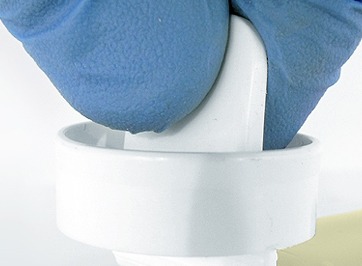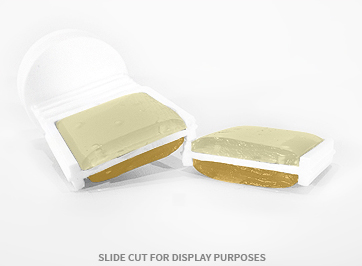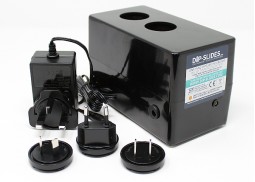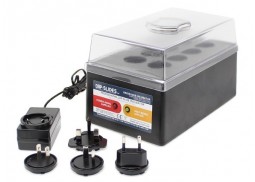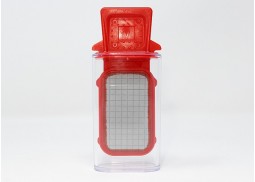Beverage microbiological testing dipslides
You can test samples of your beverages using our BBTM2 dipslides. These slides test for total count (aerobic bacteria / microbes), yeasts and moulds (fungi). These dipslides feature two different agars (prepared culture medium), Nutrient TTC agar and Malt Extract Agar.
Nutrient TTC agar tests for total count bacteria and contains red spot dye which makes it easy to view and count colonies as growth appears as red dots. Malt Extract agar tests for yeasts and moulds. If your sample contains microbiological contaminants, colonies will grow on the dipslide agars.
To test, you can either dip the slide into your sample, swab onto the dipslide or press the slide against a surface. Once your sample has been transferred onto the dipslide, you then incubate the dipslide. After incubation, you can then count the colonies / spots and compare with the chart provided.
You can also use these dipslides for environmental hygiene monitoring. Tests can be carried out on factory surfaces, equipment and beverage contact areas.
It is recommended that you purchase an incubator when using dipslides.
A step by step pictorial guide can be found further down the page.
Producers of beverages sometimes fall victim to a spoilt product. This occurs when a beverage becomes contaminated. This can affect all manner of drinks including:
- Bottled / mineral water
- Fruit Juices
- Soft Drinks
- Sports Drinks
- Smoothies
- Ice Tea
If a batch of product becomes spoilt, this can result in a costly product recall with potentially thousands of items of lost stock.
What causes beverage spoilage?
Some drinks are pasteurised or carbonated which can assist in keeping contamination to a minimum. However, even these drinks can be affected and it is always best to assess if your contamination prevention measures are working. The micro-organisms that mostly contribute to beverage spoilage are yeasts and acid tolerant bacteria and fungi.
Yeasts are the main spoilage organisms when it comes to beverages as sweet ingredients are ideal for its growth.
Contamination culprits:
- Raw materials
- Water
- Packaging
- Sweeteners
- Insect damage in fruit
- Unsanitary equipment
How are beverages affected by contamination?
- Quality is affected
- Shelf life is compromised
- Foul odour and taste
- Visible contamination
- Change in general appearance
How to use BBTM2 dip slides to test beverages
- Assess the viscosity of your sample. If testing water or similar, dip the slide in the sample, covering both sides of the slide. If testing a sticky, viscous soft drink, use a sterile swab to cover the slide on both sides with the sample.
- Return slide to its container and replace lid.
- Place the slide inside an incubator for 24 - 48 hours.
- After incubation, analyse your results by using the enclosed comparison chart.
Carefully remove the sterile Beverage dip slide from its tube ensuring that no contact is made with the agar (to avoid contamination).
For surface testing, press the Beverage dipslide onto the surface. If needed, place a finger on the bottom of the slide (on the plastic, not the agar) to apply extra pressure.
For liquid testing, immerse the Beverage dipslide into the fluid for 10 seconds then remove and allow to drain for a few seconds.
Apply a sample of the test substance to a sterile swab and gently apply to the agars.
Label the tube with the included stickers then place the slide into an incubator and allow to incubate.
Count the amount of colonies that have grown on the slide and compare them to the comparison chart provided.
Beverage Dipslide Features
Each dipslide features a virtually unbreakable and flexible paddle allowing for even, full surface testing.
Due to the design of the dipslide, fluids will drain off quickly during testing.
Each slide has a handle built into the lid that is recessed to help keep your fingers dry during testing.
One side of the slide will have a circle indicator so you know which side was used for testing which type of contaminant.
Each dipslide is dual sided to allow multiple contamination testing with one test.
Each agar is thick (approx 4mm) and raised above the dipslide to allow for easy surface testing.
Additional Details
Product Reference : BBTM2
Internal catalogue reference : DS001-40
Downloads
 (1.75MB)
(1.75MB)
 (1.77MB)
(1.77MB)
 (436.23KB)
(436.23KB)
 (1.62MB)
(1.62MB)

















